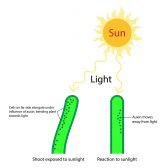Definition
noun, plural: trinucleotide repeat disorders
Any of a set of genetic disorders caused by trinucleotide repeats exceeding the stable threshold and expanding in successive generations (thus resulting in a non-Mendelian inheritance pattern)
Supplement
Non-Mendelian inheritance is a type of biological inheritance wherein the patterns of phenotypes do not accord with those as expected in Mendelian laws on inheritance. It includes extranuclear inheritance, gene conversion, infectious heredity, genomic imprinting, mosaicism, and trinucleotide repeat disorders.
Trinucleotide repeat disorder follows non-Mendelian inheritance. It results when the trinucleotide repeats exceed the stable threshold and expand in successive generations. Many of the trinucleotide repeat disorders show neurological or cognitive symptoms. Many of them show genetic anticipation, i.e. the severity of the disorder increases with each successive generation that inherits these repeats. This means that a parent with trinucleotide repeats may not demonstrate symptoms of a particular disease but the offspring may have a higher risk of exhibiting symptoms and may develop at an earlier age.
Fragile X syndrome, Huntington disease, myotonic dystrophy, and Machado-Joseph disease are examples of trinucleotide repeat disorders.
Also called:
- trinucleotide repeat expansion disorder
- triplet repeat expansion disorder
- codon reiteration disorder
See also:







